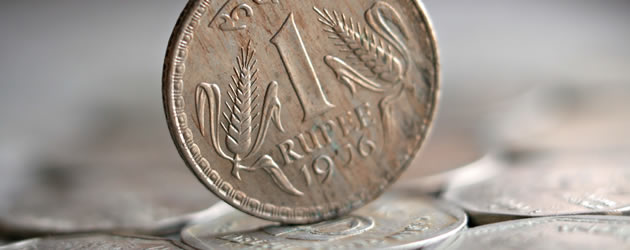The Pound Sterling to Indian Rupee (GBP/INR) exchange rate continued to trade higher to a 1-week high as concerns over the global economy and tumbling oil prices continued to weaken demand for riskier emerging market assets.
Earlier the Pound Sterling to Indian Rupee (GBP/INR) exchange rate strengthened on Tuesday despite the release of weaker than forecast UK manufacturing and industrial production data. The UK currency was able to hold onto gains as data out of India showed that the nation’s current account deficit widened.
According to a statement released by the Reserve Bank of India, the Asian nation’s current account deficit widened more than expected as exports fell and demand for imported gold surged. The bank said that the July-September deficit widened from $7.8 billion to $10.1 billion. Economists has been forecasting for a deficit figure of $9.4 billion.
Also weighing on the Rupee is the reduced demand for riskier assets. Oil prices tumbled to a fresh five-year low and uncertainty over the political situation in Greece caused economists to dump riskier assets and seek safety in currencies such as the US Dollar, Japanese Yen and Swiss Franc.
Risk Aversion Weighs on Rupee
As India is an emerging market it is deemed as a riskier place to invest so with concerns building over the Japanese and Chinese economies as well as the weakness of the Eurozone, the Rupee becomes one of the first currencies to be ditched in favour of safer assets.
“European markets are trading lower and following the sell off on Wall Street, as oil prices continue to stay under pressure. Investors are worried that there is no floor in sight for the crushing oil prices,” said Naeem Aslam, analyst at Avatrade.
The Pound continued to advance against the Rupee despite domestic UK data showing that manufacturing production fell unexpectedly in October.
According to the Office for National Statistics (ONS) UK manufacturing production decreased by 0.7% in October, disappointing expectations for a gain of 0.2%. Manufacturing production rose by 0.6% in September, whose figure was upwardly revised from previously reported rise of 0.4%.

